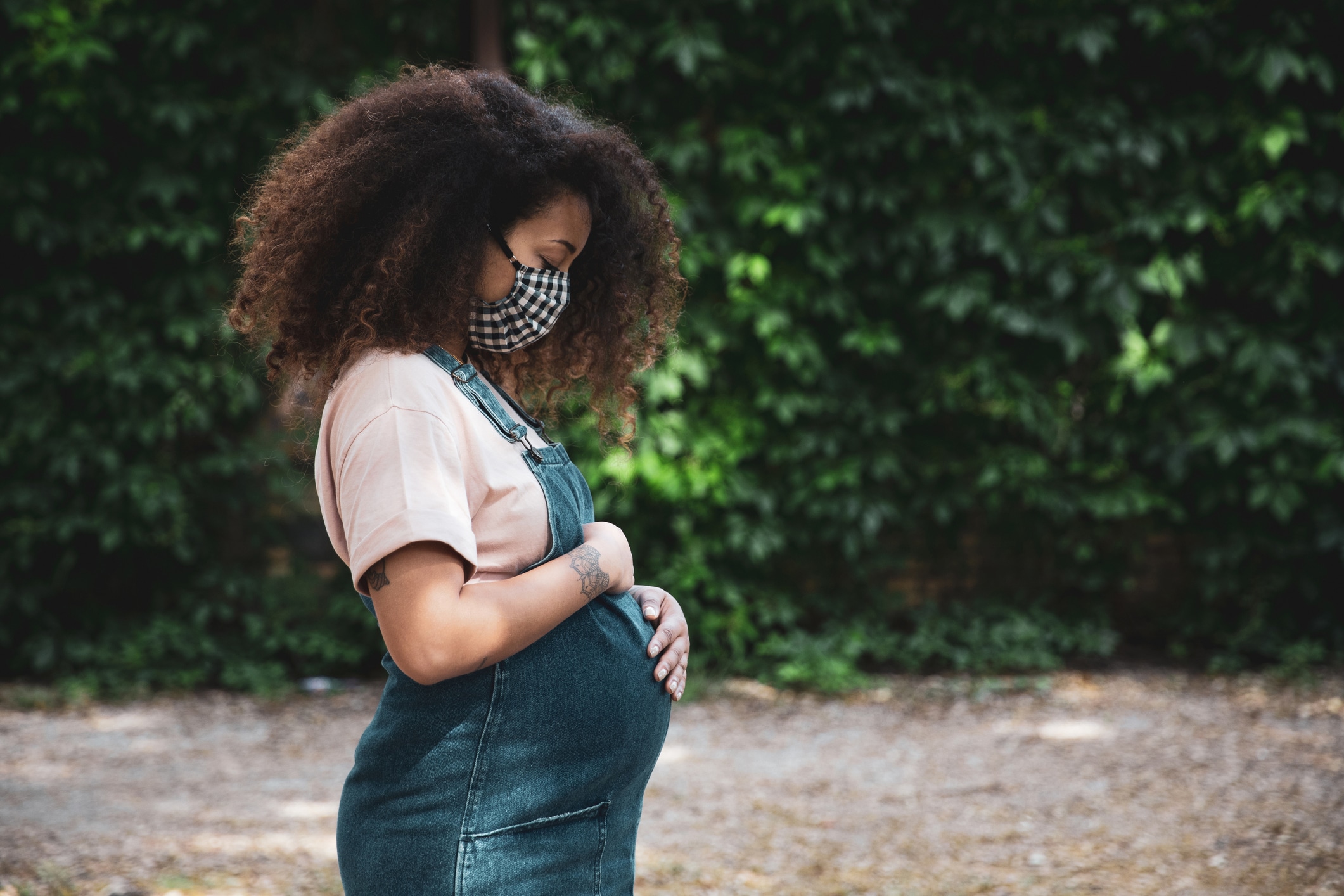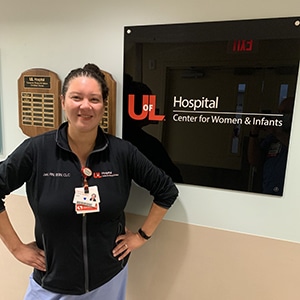
Many health issues may harm a woman’s well-being during pregnancy and childbirth. Three out of five maternal deaths in the U.S. are considered preventable, yet the U.S. has a higher rate compared to other high-income countries. The Center for Women & Infants at UofL Health – UofL Hospital has recommendations for seeking care if you are pregnant or a new mom. Some symptoms may even show up a year after delivery.
Women experiencing any of the following symptoms should seek immediate medical attention:
- Chest pain, difficulty breathing, coughing or coughing up blood, or a fast or irregular heartbeat: Any of these symptoms may signal a problem with your heart or could be a sign of a blood clot in your lung.
- Seizures: This can happen due to a complication of pregnancy known as eclampsia.
- Suicidal thoughts: Postpartum depression can affect anyone. If you are having thoughts about hurting yourself or another person, seek help immediately.
When seeking emergency care, women should be sure to tell providers that they are pregnant or if they recently delivered a baby. Some of these conditions can occur several months and even a year after having a baby. Knowing that you are postpartum can help providers diagnose your condition and make sure that the obstetric care team is consulted.
For the following symptoms, women should call their health care provider:
- A headache unrelieved by medicine or changes in vision. These can be signs of pre-eclampsia (a condition that can lead to seizures or death). Your doctor will check your blood pressure and may run labs to determine if you have preeclampsia. Some women might also experience an increase in hand or face swelling, nausea or stomach pain especially in the right upper part of the belly.
- Heavy vaginal bleeding, more than one pad per hour. Sometimes women have postpartum hemorrhages after they are sent home from the hospital following delivery.
- A fever greater than 100.4 F. This could be a sign of infection.
- Pain or swelling in your legs or arms. This could be a sign of a blood clot. You might also notice warmness or redness of the skin.
- If you have had a cesarean section and your incision is not healing well or you notice a smell or discharge, this could be a sign of infection.
If you just have a feeling that something isn’t right, even if you are not experiencing one of the symptoms above, call your provider and talk about your concerns. You know your body best and you know when something is wrong.









